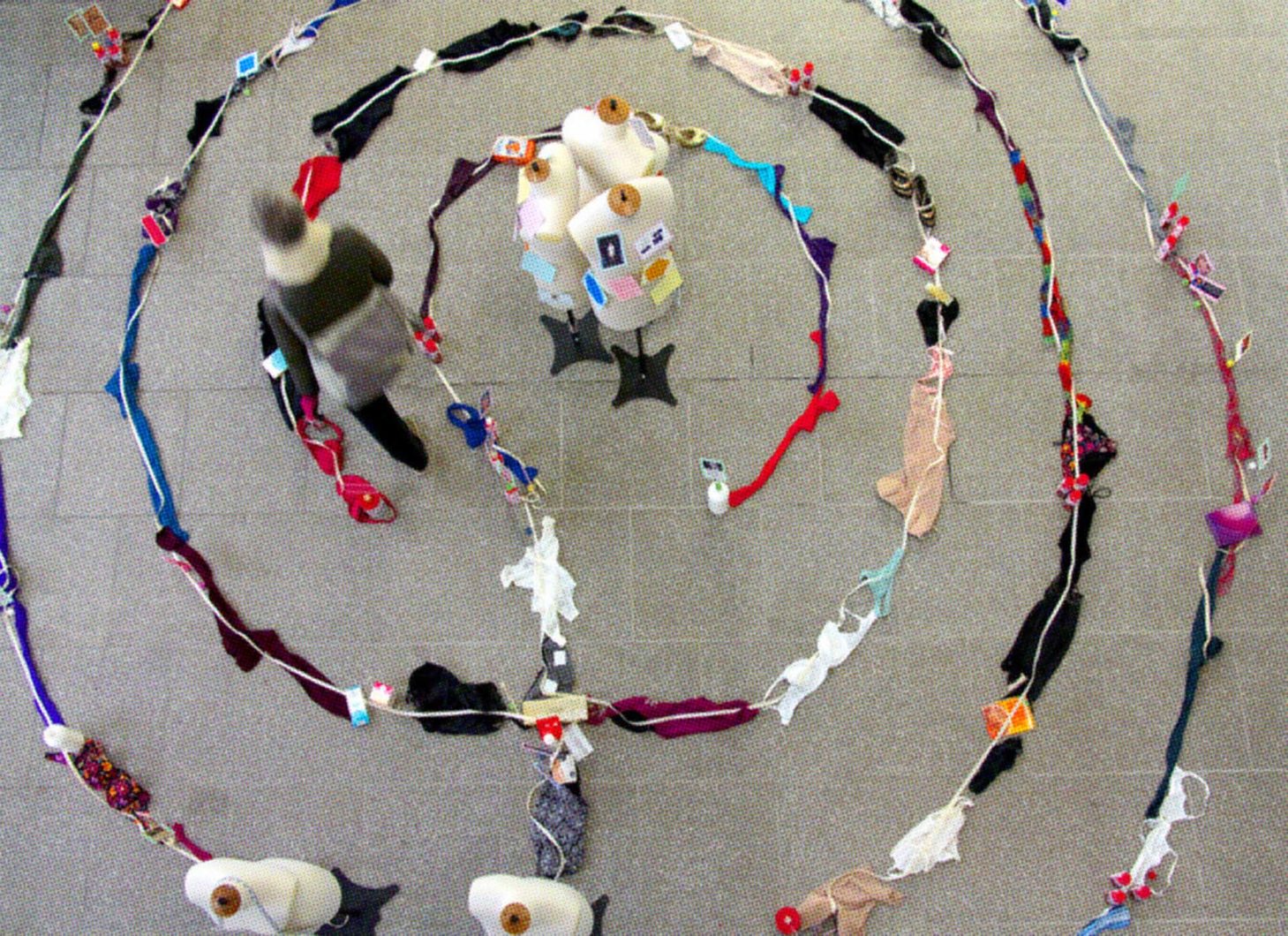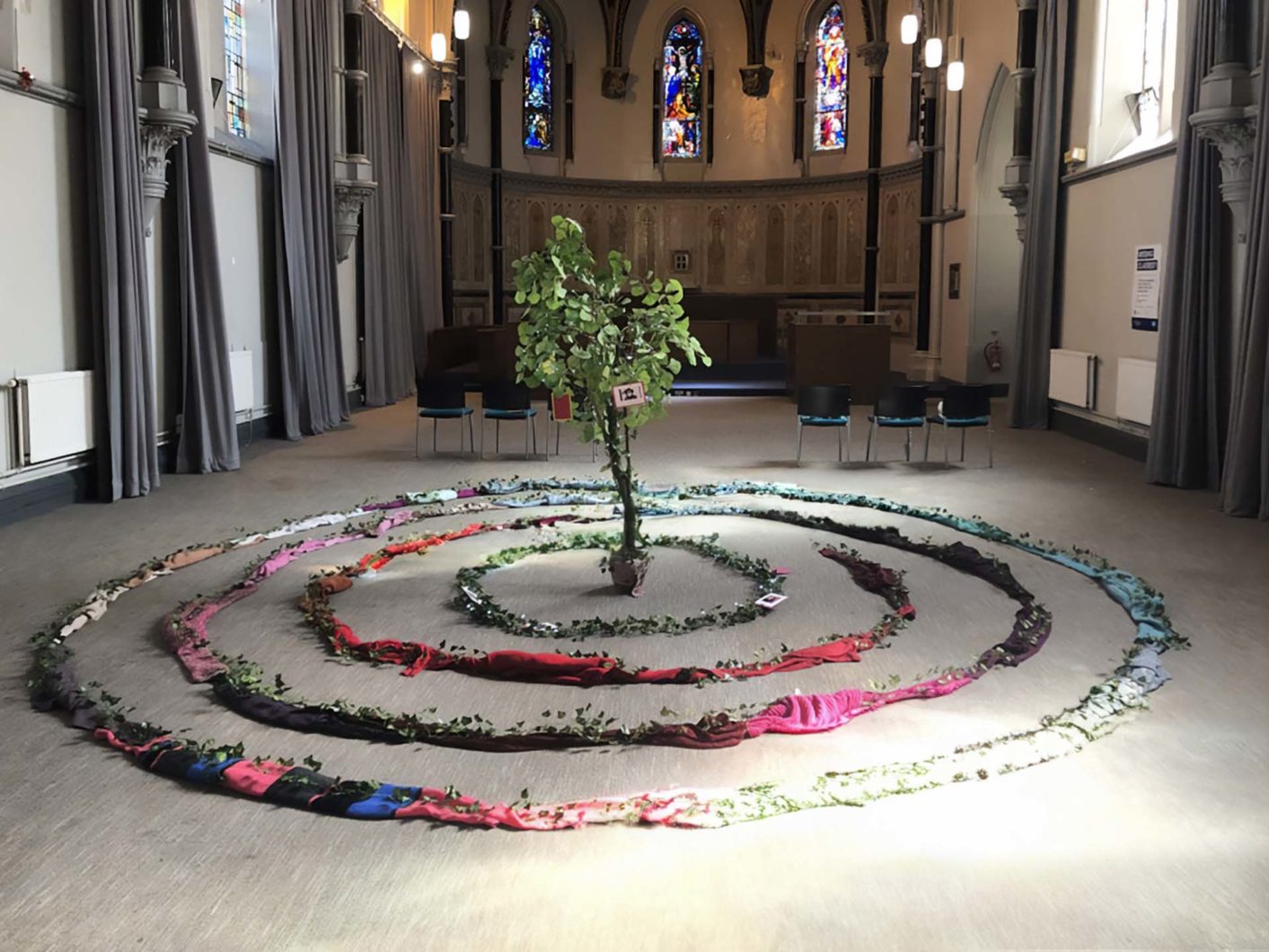The Labyrinth Exchange
An art-based public engagement tool that gathers stories from marginalised communities to encourage and bring about change


Initiator(s)
Elaine McNeill, Alex Irving, Teri Howson-Griffiths
Description
This arts-based public engagement tool is rooted in the principles of Freire, Boal and participatory action research. The project was established to increase participation by patients with complex health needs, in the planning, commissioning, delivery and evaluation of the health and social care services they receive. The Labyrinth Exchange strengthens the patient’s voice and provides the means to activate social change. By co-producing a labyrinth art installation, constituents are placed at the heart of the process intended to deepen the policy makers and health commissioners understanding. Constituents use art to develop content in relation to a health urgency. This is used to create a labyrinth path. The labyrinth is a unicursal path, outlined on the floor. Its circular shape is combined with a spiral that takes you into the centre and back out again. Health topics covered by the Labyrinth Exchange include dementia, body image and the wellbeing of prisoners.
Goals
The Labyrinth Exchange creates a space for open dialogue, education, and provides authentic information in relation to the patient experience. It enhances the process of involving constituents in the co-design of health services. It presents the exploration of marginalised and controversial perspectives that can often be missed with more traditional engagement methods. (i.e. focus groups, surveys, interviews, questionnaires etc.). Labyrinth installations can be used as a tool to raise awareness amongst the wider population of the complexities around health conditions.
Beneficial outcomes
The Lost and Found (Dementia) Labyrinth resulted in the development of a toolkit for social groups to increase social interaction, vital for those with an early diagnosis of dementia. The toolkit has been disseminated amongst health services as a social prescribing model to reduce the impact of loneliness. ( Made Up to Meet Up). A comedy play ‘On Cloud 79’ co-produced using content from the labyrinth exchange, amused audiences whilst raising awareness of the issues around living well with dementia. The Lost and Found Labyrinth was endorsed by Liverpool City Council and Dementia Action alliance Liverpool to raise awareness of dementia in schools. The Bird Lime (Prison) Labyrinth has been used as a family day activity providing additional time for prisoners to spend with family.
Location
UK
Users
People Living with Dementia, Prisoners, Young people discussing attitudes to body image, Homeless
Maintained by
Liverpool John Moores University, Liverpool City Council (Dementia Schools Labyrinth)
Duration
2017- ongoing
Category
Scientific
Pedagogical
Politics
Urban Development
Economy
Environment
Social






